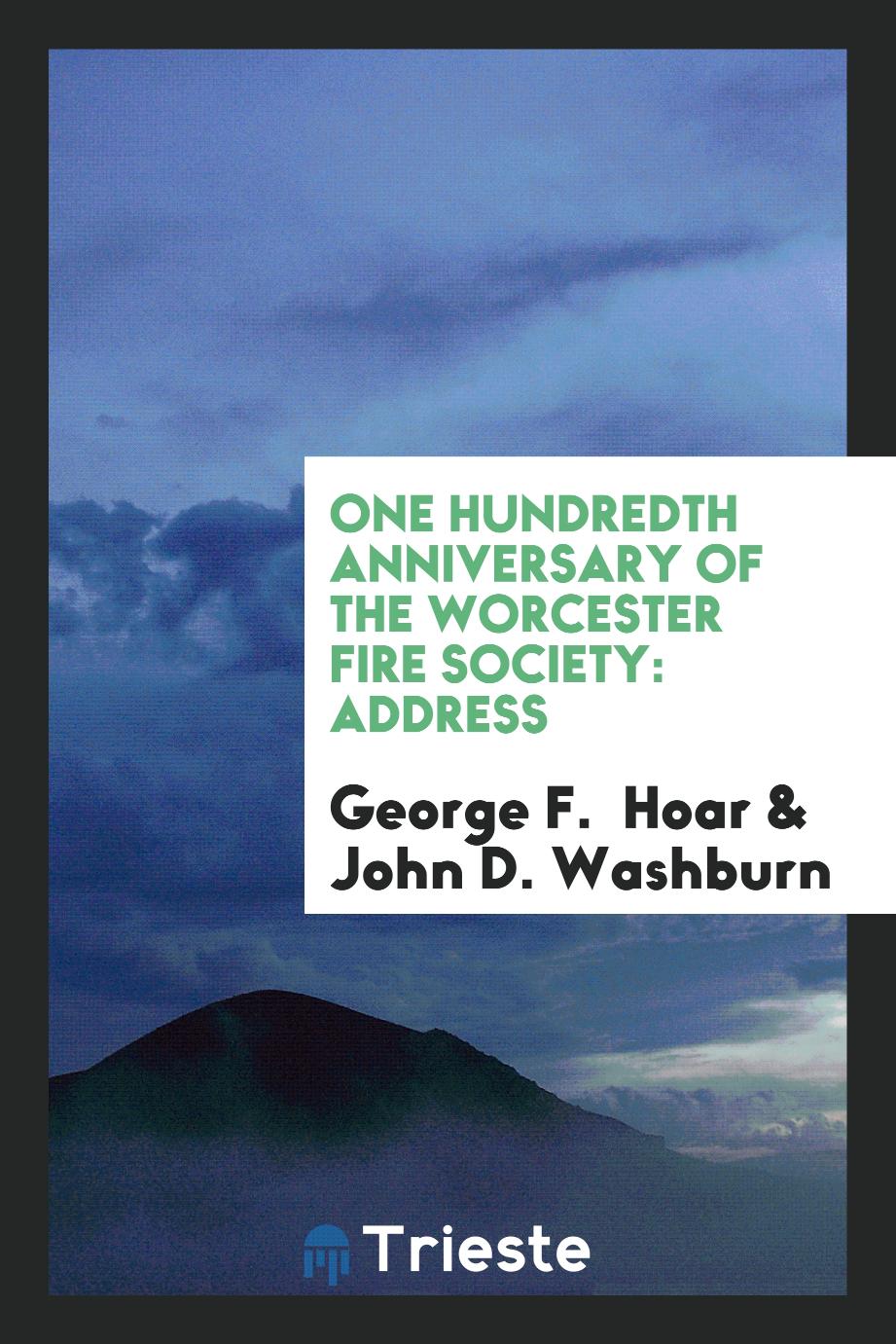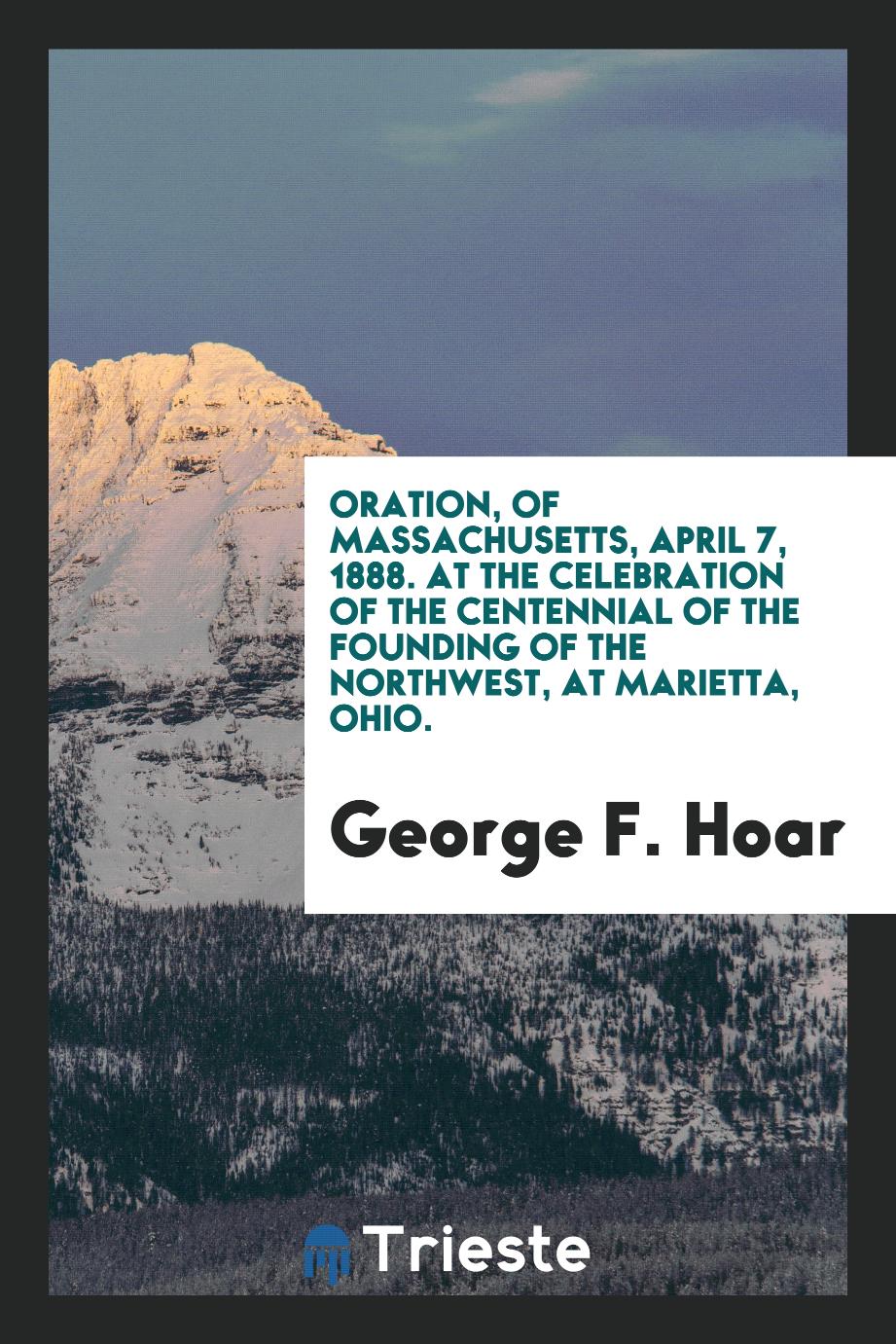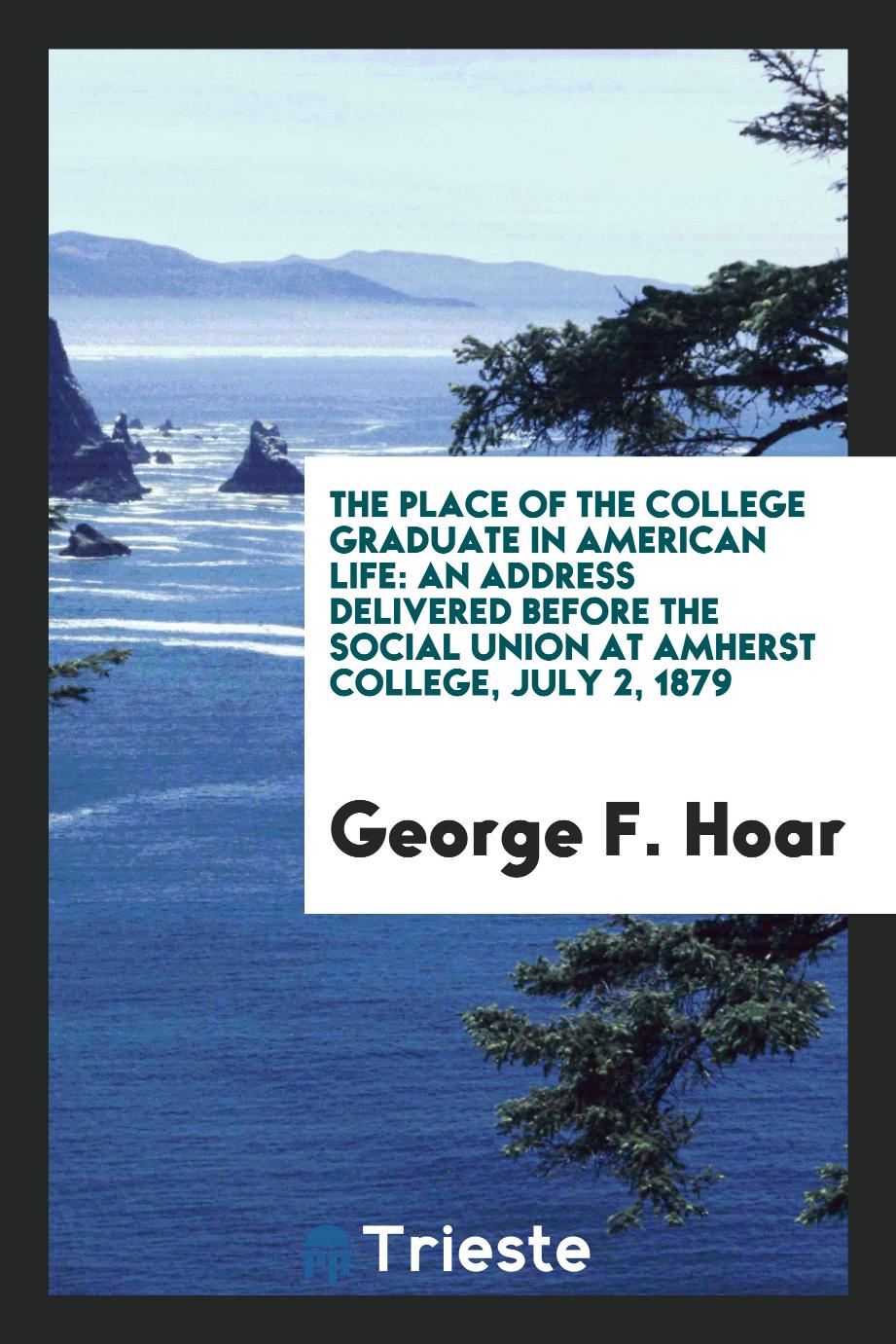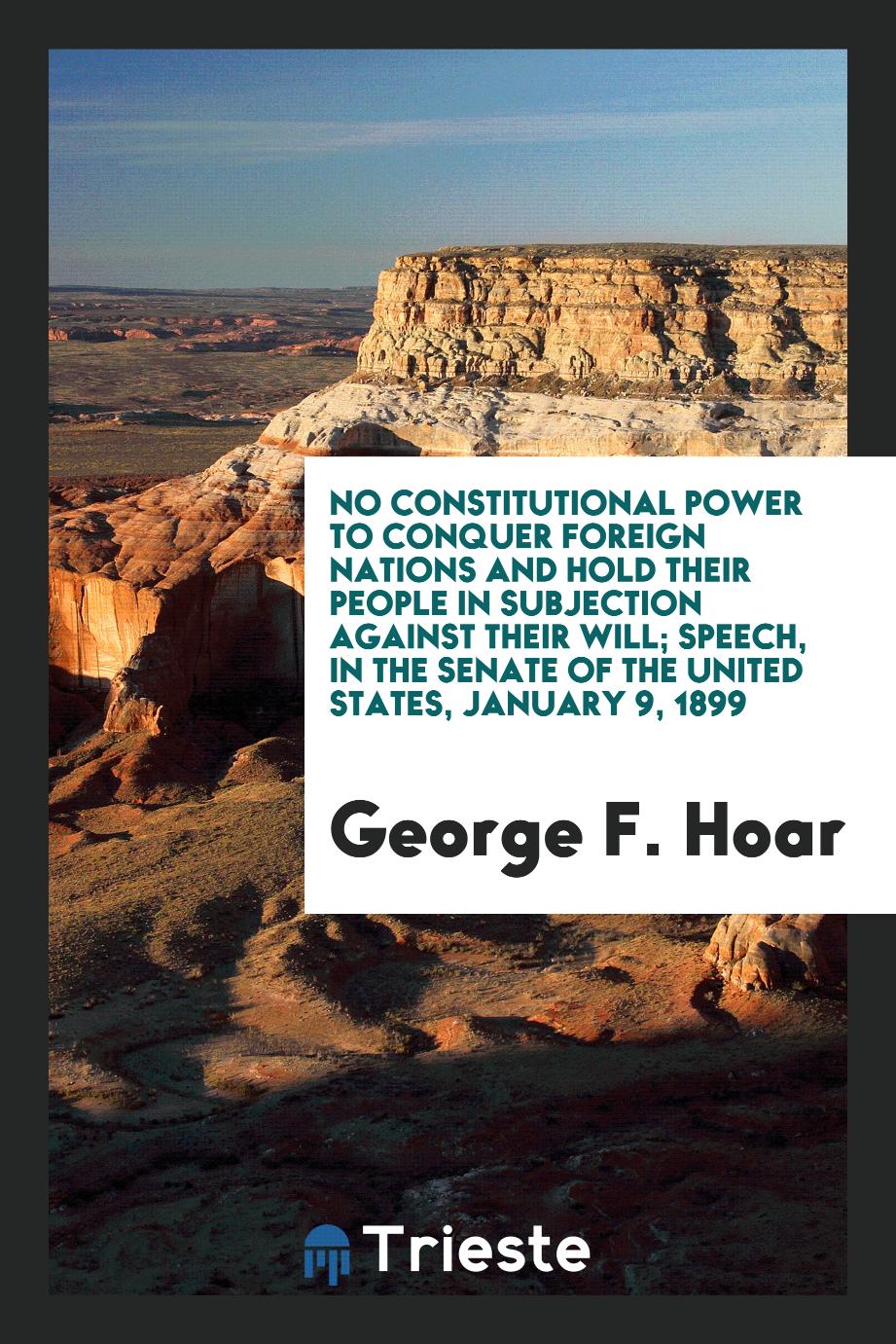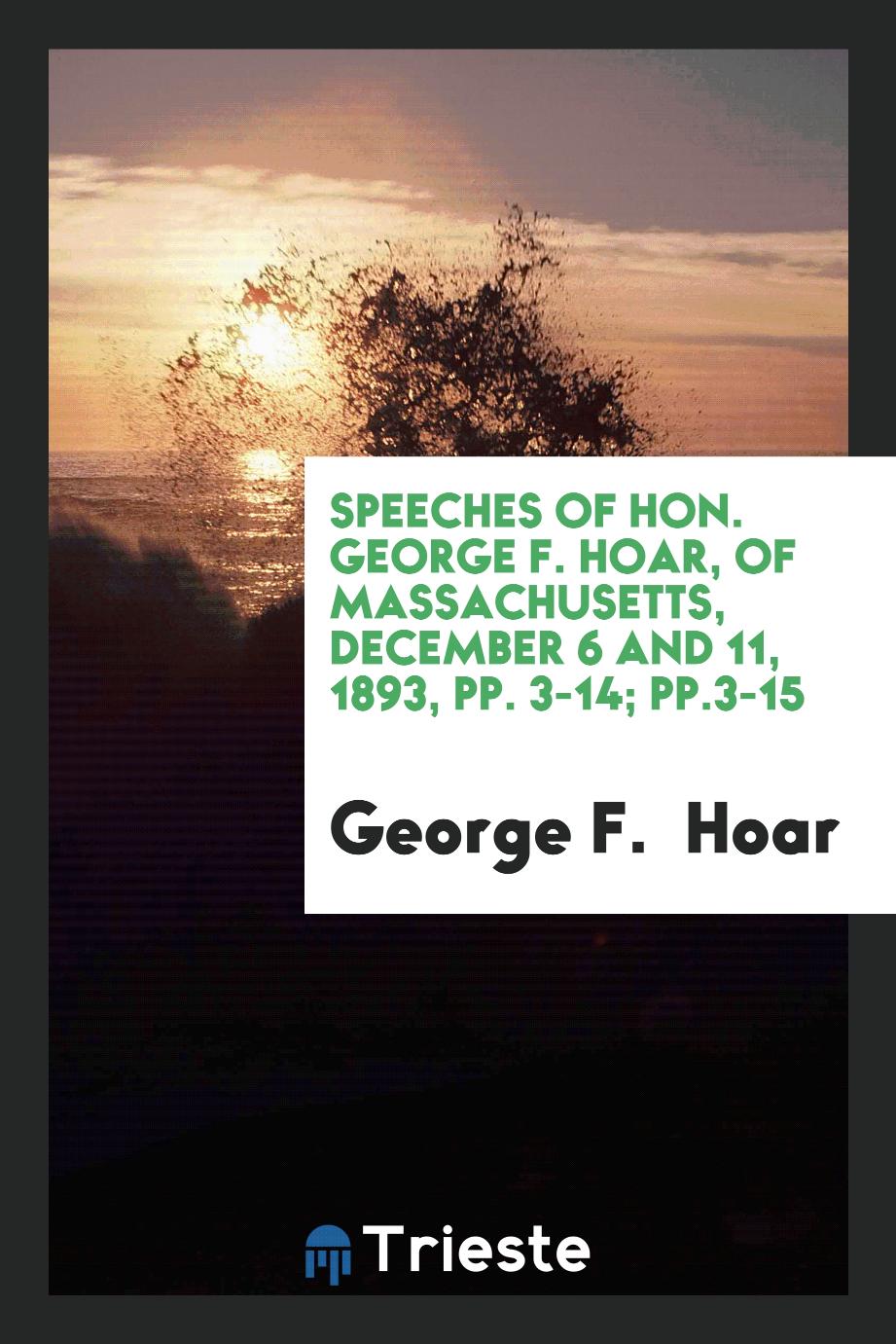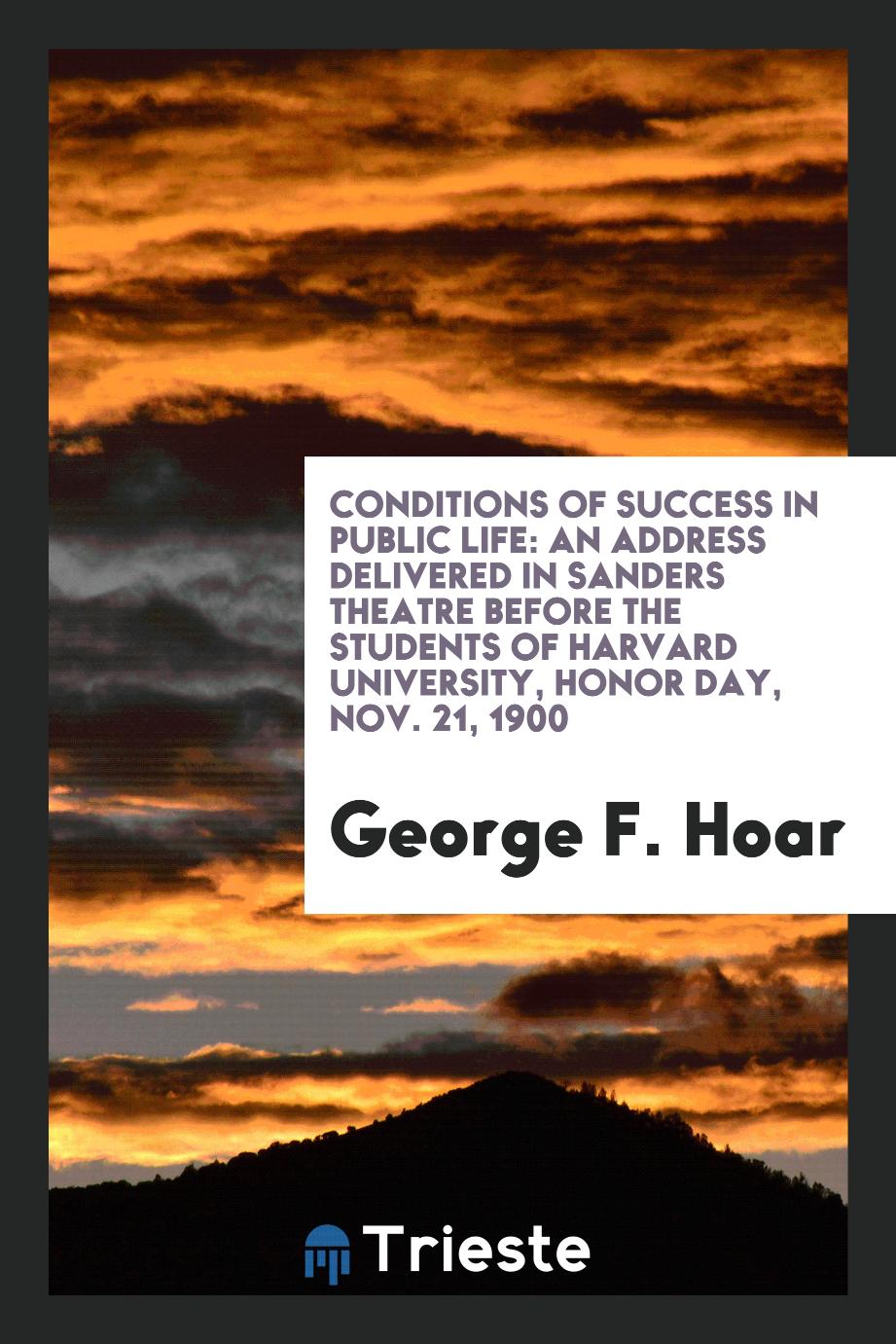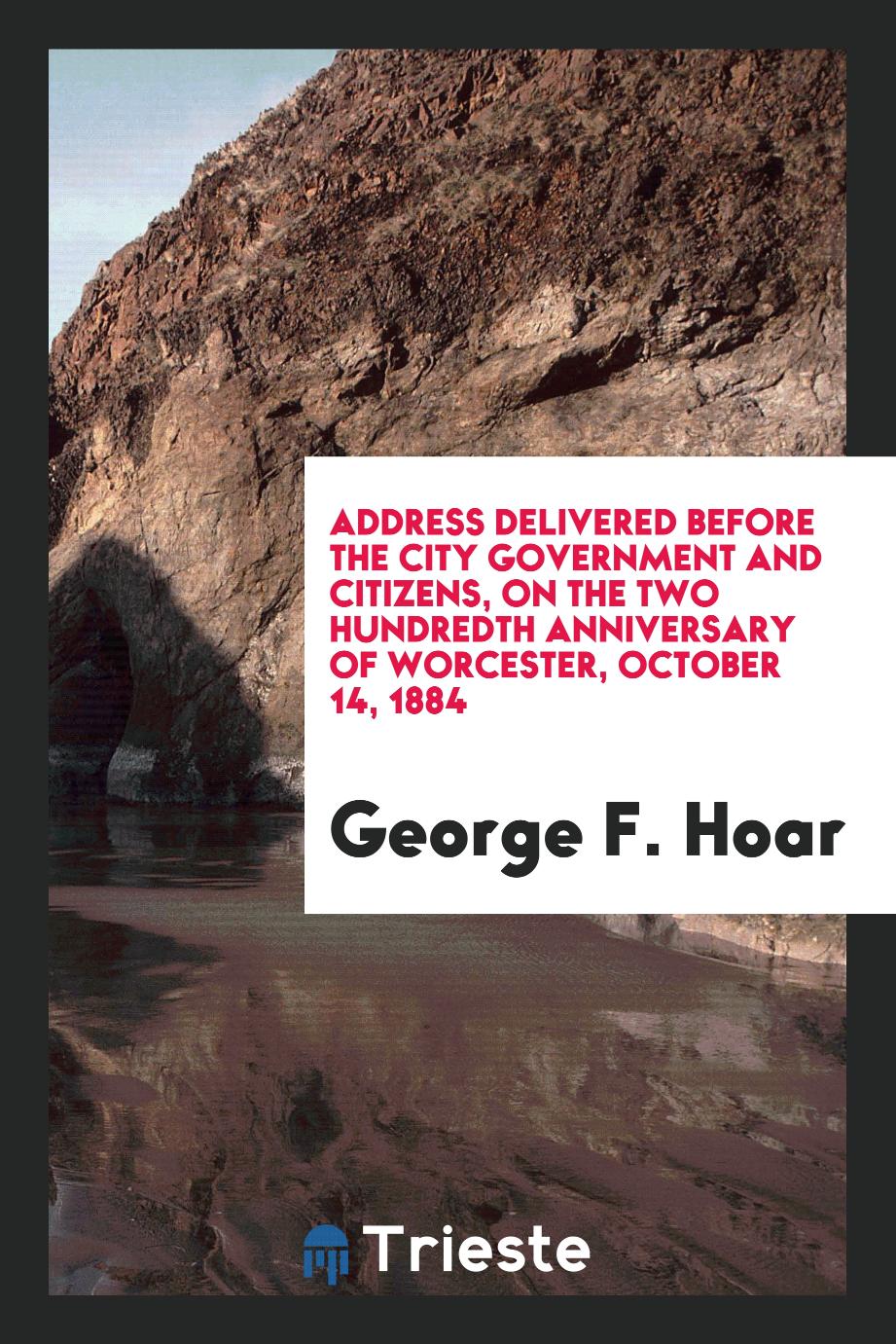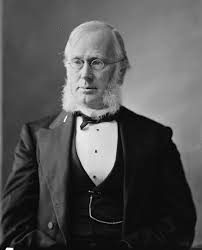
George F. Hoar
George Frisbie Hoar (August 29, 1826 - September 30, 1904), a prominent American politician and United States Senator from Massachusetts from 1877 to 1904, belonged to an extended family that became politically prominent in 18th- and 19th-century New England. Hoar was born in Concord, Massachusetts, on August 29, 1826. He studied for several months at a boarding school in Waltham, Massachusetts, run by Samuel and Sarah Bradford Ripley. He graduated from Harvard University in 1846 and earned his law degree at Harvard Law School in 1849. He was admitted to the bar and settled in Worcester, Massachusetts, where he practiced law. Initially a member of the Free Soil Party, he joined the Republican Party shortly after its founding. Hoar was elected to the Massachusetts House of Representatives in 1852 and to the Massachusetts Senate in 1857. He represented Massachusetts as a member of the U.S. House of Representatives for four terms from 1869 to 1877 and then served in the U.S. Senate until his death during his fifth term. For one term during his House service, from 1873 to 1875, his brother Ebenezer Rockood Hoar served alongside him. He was a Republican, who generally avoided party partisanship and did not hesitate to criticize other members of his party whose actions or policies he believed were in error. In 1880 he was chairman of the 1880 Republican National Convention. When James Garfield, who eventually won the party's nomination and the presidential election, rose to object that votes were being cast for him without his consent, Hoar disallowed his objection. He later said: "I was terribly afraid that he would say something that would make his nomination impossible." Hoar was long noted as a fighter against political corruption. He campaigned for the rights of African Americans and Native Americans. He opposed the Chinese Exclusion Act of 1882, describing it as "nothing less than the legalization of racial discrimination" He was a member of the Congressional Electoral Commission that settled the highly disputed 1876 U.S. presidential election. He authored the Presidential Succession Act of 1886. He argued in the Senate in favor of women's suffrage as early as 1886. He was a consistent opponent of American imperialism. He did not share his Senate colleagues' enthusiasm for American intervention in Cuba in the late 1890s. On December 1897, he met with Native Hawaiian leaders opposed to the annexation of their nation. He then presented the Kūʻē Petitions to Congress and helped to defeat President William McKinley's attempt to annex the Republic of Hawaii by treaty, though the islands were eventually annexed by means of joint resolution, called the Newlands Resolution.
